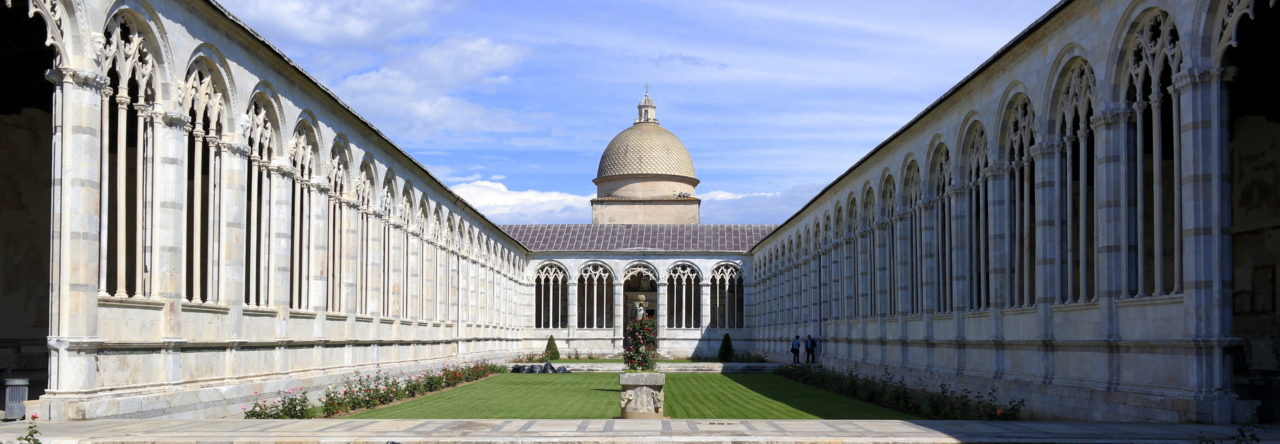Source: Giacomo Filippo Foresti, Supplementum Chronicarum (Venice: Bernardinus Benalius, 1483), fol. 42v.
Transcription
“Ea [=Pisa] tamen superbissimis edifiis et pontibus super Arnum clarissimis exornata est. Habet et hec ipsa pisanorum civitas templum dive virgini dicatum et claustrum toto orbe celeberrimum quod campus sanctus nuncupatur. Quod videre et mirari incredibile videtur.”
Translation
“Nonetheless this city is decorated with the most splendid buildings and very illustrious bridges across the Arno. The same city of the Pisans has a church dedicated to the divine Virgin and a cloister that is most renowned in the whole world and is called Camposanto. This seems incredible when you see and admire it.”
